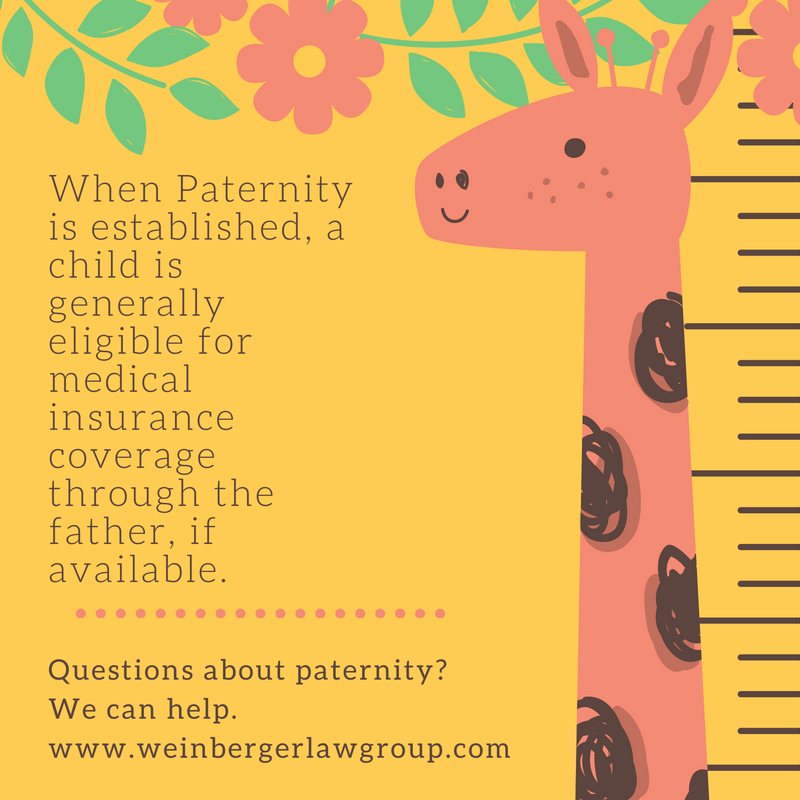What is Paternity and How Does It Affect My Rights in New Jersey?
 Have questions about paternity? Here’s what you need to know about establishing fatherhood in New Jersey, and the legal rights and responsibilities that come with paternity.
Have questions about paternity? Here’s what you need to know about establishing fatherhood in New Jersey, and the legal rights and responsibilities that come with paternity.
Establishing paternity in New Jersey has a great amount of benefits for the parents of a child and for the child himself. Once it has been determined and established, parental rights can be established, but, in order for any parent to assert their rights to custody, parenting time or child support, establishing paternity must be the first step.
What is paternity?
Paternity in New Jersey is the legal state of being someone’s father. It is important to note that a biological relationship does not have to exist for paternity to exist. Adoption can also create the legal state of being someone’s father. Paternity law refers to this legal relationship between a father and his child and deals with the rights and obligations of both the father and the child to each other as well as to others.
How is paternity established in New Jersey?
Paternity here in New Jersey can be established in two ways: either the father admits to fathering the child or a DNA test must be performed. If a child was born to a married couple, paternity is assumed. However, if the couple is unmarried, legal paternity must be established. When a father agrees that the child is his, he signs a document for “voluntary acknowledgement.” When he doesn’t agree, the court system will help him take steps, including genetic testing, to establish whether or not he is the father.
Either parent may request a DNA test. Or, it can be required by the county office or ordered by the court. Both parents and the child must be tested. If the test scores 95 percent or higher, the man is presumed to be the father.
What happens after paternity is established?
Once paternity is established, the custodial parent, or the parent who has custody may seek child support from the father for their child. That parent can also file for formal custody if custody has not already been determined by the court. Also, the child would be eligible for medical insurance coverage through the father, if available.
By the same token, once a father either admits to paternity or paternity has been proved by DNA testing, he can ask for custody rights and also for parenting time with the child. Hopefully, the parents can agree to a custody and parenting time plan themselves or with the help of a mediator. If they cannot agree, then the family court must intervene and will decide all issues relating to the child, including support, custody or parenting time, that the parents cannot agree upon. It is beneficial to the entire family for the parents to work out their differences while keeping the best interests of the child at heart.
How do I fight for my rights?
If you have established paternity and you cannot agree with your child’s other parent, then you will have to go to the family court for a decision regarding your child. The court’s standard for review of any case involving a child is the best interests of that child. If you have tried but failed at mediation or negotiations with your child’s other parent, you may have to have a custody or parenting time hearing. At that hearing you may have to testify and you may also be ordered by the judge to hire an expert to evaluate you, your child and your child’s other parent. That expert will then submit a report and testify at the hearing as to their findings. In very complicated cases, it is advised that you discuss your matter with a qualified family attorney who can advise you regarding your specific situation. It is worth noting that the New Jersey courts strongly favor extensive participation of both parents in their child’s life. Digging in your heels and refusing to work with your other parent will not been viewed favorably by the judge.
For further assistance
For a legal outlook on your situation, please contact us today to schedule your initial consultation with one of our qualified family law attorneys, experienced in all areas of paternity, custody, parenting time and child support law here in New Jersey.




